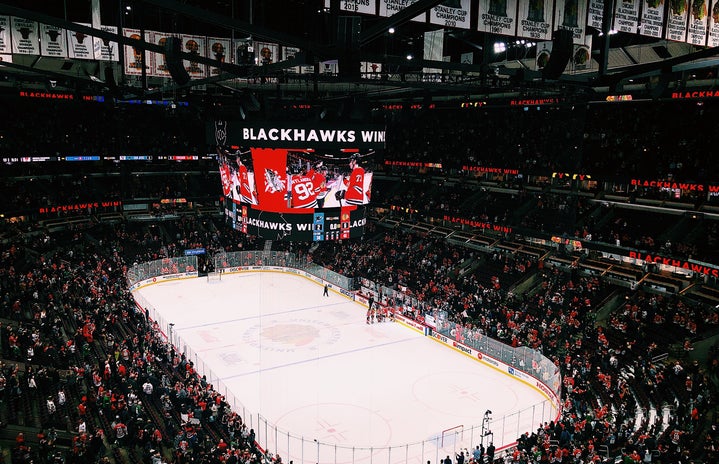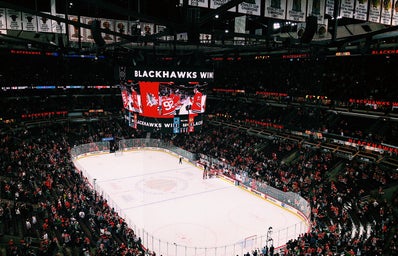The relationship between a professional athlete and their organization is imperative to the athlete’s success which in turn contributes to the success of the organization. But what happens when the success of the organization is threatened? They are presented with the predicament of choosing between protecting the well-being of their athletes or avoiding public relations nightmares – and historically the former is usually not chosen.
In 2010, the Chicago Blackhawks won the National Hockey League’s coveted Stanley Cup. However, in 2021, what is being highlighted about this specific championship is the intentional negligence of the executive and coaching staff who failed to protect athlete, Kyle Beach, from a predator in his place of work.
Kyle Beach made many key players within the Blackhawks organization aware that he was assaulted by the team’s video coach, Brad Aldrich. The same key players ultimately came to the unanimous decision to sweep this incident under the rug, in turn invalidating their colleague’s claims that imposed a predator among his colleagues. The Blackhawks organization knowingly put an (at the time alleged) sexual predator at the foot of their employees. Brad Aldrich should not have been able to directly return to the locker room after the allegations were made.
As outlined in the official incident investigation report curated by the law firm Jenner & Block, The Blackhawks organization, including its Director of Human Resources, violated its own sexual harassment policy that required an investigation of all reports of sexual harassment “to be conducted promptly and thoroughly”. As a result, the predator they let loose within their organization went on to assault a Blackhawks intern then, years later two students, as well as a high school student. All survivors of the wrath of a serial predator. Brad Aldrich was eventually incarcerated for one of his assaults but the repercussions of the Chicago Blackhawks executives did not disappear as they would have hoped.
Kyle Beach was failed by a system that was designed to help him. In an interview with TSN, he noted “I did what I had to do to survive, to continue chasing my dream…I was threatened and my career was on the line”. No professional athlete should have their career threatened as a result of a workplace assault. Beach, in the same interview, highlighted that he has made an effort over the years to suppress these memories that have in turn naturally heavily affected his life since the incident.
It is honestly unacceptable that this incident is only being addressed over a decade later. As of this moment, Jenner & Block have released their findings from their private investigation in a detailed report where they found the organization violated their own policies and was blatantly negligent. Their actions placed many people at risk and they are just now starting to endure the repercussions of them. The key players within the organization that were made aware of this initial incident have just now, over a decade later, resigned or have been asked to leave the league. But is this enough? These executives made a cumulative decision that a championship should take priority over their players’ safety. It was no different when allegations were brought to life about USA gymnastics doctor, Larry Nassar.
In 1994, an American olympian alleges an organization-imposed doctor sexually abused her throughout her tenure with USA gymnastics. It should have ended there. That should have been the end of Nassar’s career- as a doctor, a member of USA gymnastics, and most would argue society in general. But no – it took over two decades, more than 140 victims, and a three hundred and eighty million dollar settlement to end his medical career. It has been reported that like the Chicago Blackhawks, numerous key players in the gymnastics world were made aware that the man being put on a pedestal in their world, was a predator.
“We need to call out the deeper issue at hand. We live in a society where action is not taken when it’s most needed.”- Melody Posthuma-Vanderveen, Former Patient of Larry Nassar
https://www.youtube.com/watch?v=99yPZFrGiMg
The question still remains: why were they not doing anything? The PR scandal inevitably still happened. The incidents were not just going to go away. These athletes had dreams that they trained their entire life to accomplish, only to be abused and silenced with nowhere to turn. Predators, historically, have been protected while athletes continue to suffer even after they have recovered physically – they can not outrun the psychological effects of abuse.
For me, it is hard to fathom the rationale behind abandoning your athletes because they stood for themselves. Maybe I am naive to think people even with internal pressures still have some human decency and respect. USA gymnastics along with the Chicago Blackhawks have paid their monetary dues but is that enough? Should better precedence be set than just the ability to pay away an organization’s shortcomings? In my opinion, yes. The world of professional sports has come a long way in terms of taking accountability but they still have more headway to make.


